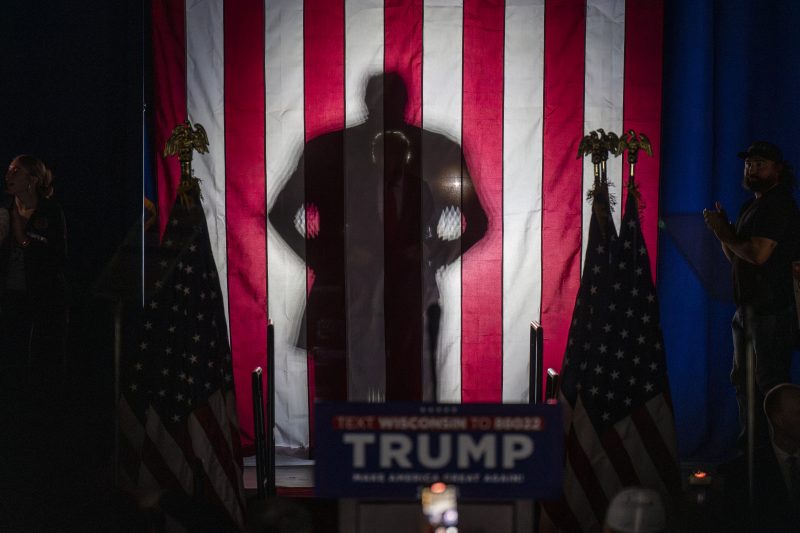The call for former President Donald Trump to headline the upcoming Libertarian National Convention has sparked fierce debate and generated mixed reactions within the libertarian community. The unconventional suggestion, put forth by the prominent Libertarian Party figure Angela McArdle, has stirred controversy as libertarians struggle to reconcile their principles with the polarizing figure of Trump.
McArdle’s proposition has ignited a heated discussion regarding the essence of libertarianism and its relationship with mainstream politics. While some supporters view Trump’s potential appearance at the convention as a means to attract attention and expand the party’s reach, others express deep concern over the alignment with a figure known for his authoritarian tendencies and disregard for civil liberties.
Critics argue that inviting Trump to headline the event undermines the core values of libertarianism, which advocate for individual freedom, limited government intervention, and the protection of civil liberties. Trump’s track record, characterized by a penchant for executive overreach and an escalation of government power, stands in stark contrast to these principles, prompting many libertarians to question the compatibility of his beliefs with their own.
Moreover, Trump’s divisive rhetoric and unorthodox approach to governance have strained the Libertarian Party’s efforts to establish itself as a credible alternative to the two-party system. By endorsing Trump, some fear that the party risks losing its identity and betraying the principles it seeks to uphold, thereby alienating its core supporters and muddying its ideological stance.
However, proponents of McArdle’s proposal argue that Trump’s participation could serve as a strategic maneuver to increase visibility and draw attention to libertarian ideals. By leveraging Trump’s widespread appeal and media presence, the Libertarian Party may be able to attract new followers and elevate its platform in a political landscape dominated by traditional parties.
Nevertheless, the controversy surrounding Trump’s potential involvement in the Libertarian National Convention highlights a broader tension within the party regarding its strategic direction and ideological purity. As libertarians grapple with the complexities of aligning with mainstream figures while upholding their core beliefs, the debate underscores the challenges of navigating the intersection between principles and pragmatic considerations in pursuit of political influence.



























